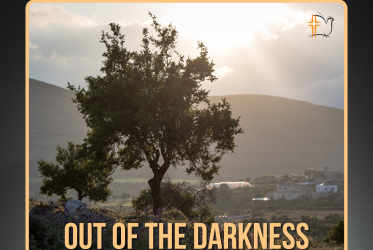By Katja Dorothea Buck*
The Sisters of Mary in Beni Suef (Egypt) manage kindergartens, hospitals, schools and retirement homes. They take care of orphans, old and disabled people. So they build bridges to the Muslim majority society, which are more needed than ever.
From the outside, the convent of the Sisters of Mary reminds us in no way of a classical monastery. No cloister, no church tower behind a high and thick wall indicate that in this multi-story building on a side street in the center of Beni Suef, 80 Coptic nuns live. The passage to the courtyard is full of pallets with bricks and vats with mortar. A look up reveals that the building is currently getting additional floors.
Construction workers in the adjoining kindergarten are also busy with refurbishment work to modernize the rooms, where 600 children from newborn to preschool age are being cared for. The kindergarten of the Sisters of Mary has a good reputation not only among the Coptic families in Beni Suef, this provincial town a good hundred kilometers south of Cairo. Many Muslim parents are also happy to trust their children to the care of the nuns. The kindergarten is one of the few institutions in Egypt that have, early on, set elements of Montessori pedagogy.
"We see every child in its own development and promote it accordingly," says Sister Amalia, who has run the kindergarten for nearly 30 years. Her office is on the second floor, almost in the middle of the building. This allows her to reach all group rooms in a short way and to be quick with the employees and the children.
Also, the contact with the parents is important to her, she says and tells of a Muslim child who lost his father only three weeks ago. He had been stabbed in a clash between rival groups. "The man's mother was here the other day and cried. He was her only son. There is no way to comfort a mother in such a situation." Sister Amalia shakes her head briefly and shrugs helplessly. Then she stands up. She wants to show the new hospital next door.
The Salam Hospital was opened in 2015. The chairs in the waiting areas are all occupied. Many women wear the niqab, that face veil, which is a clear indicator, that they are Muslims. It has soon been known in the city, that the hospital of the Sisters of Mary has state-of-the-art equipment and a good infrastructure and that doctors and nurses there work on a high professional level.
At the Salam Hospital, everyone is treated regardless of income and religion. The same goes for the many other social services that belong to the monastery. In addition to the hospital and the kindergarten next door, the sisters run numerous other kindergartens around Beni Suef, a school for more than 1,000 children, a home for elderly people, an orphanage, a day clinic, several facilities for people with disabilities and boarding homes for Coptic female students coming from the villages of Upper Egypt to study at the University of Beni Suef. It's a big social enterprise that the Sisters of Mary manage.
Eighty nuns live in the convent in Beni Suef. The oldest is 95 years old, the youngest 22. More than half are under 40 years old. The Bishop of Beni Suef, to whom the monastery is subordinate, receives many inquiries from young women who want to join the community.
Anyone who has once crossed the mortar vats and brick pallets and comes into the reception room will notice that life as a Sister of Mary has its own charm. The nuns welcome visitors with great frankness and cordiality; no complicated protocol needs to be observed. There is only one basic rule: open arms, open ears and open hearts. The nuns also treat each other with friendly respect and honest interest. And sometimes with humor, when one gives another a special nickname. Anyone who knows the Egyptian everyday life, which quickly gets for most of the people a survival struggle with its innumerable challenges, can well understand why so many young Coptic women are attracted to the way of life in the monastery and in particular to the Order of the Sisters of Mary.
In the Coptic monasticism this order plays a special role. Traditionally, there is a distinction between contemplative monasteries, where nuns spend their time praying and never go outside of the convent, and diaconal sisterhoods where women also stay celibate and live in a community but leave the convent every day to work in social projects. Their daily routine is not based on a strict monastic rule.
In 1965, the late Bishop Athanasios of Beni Suef founded the Order of the Sisters of Mary and brought together both monastic strands. The nuns should have fixed prayer times and carry the fruits of these prayers into their diaconal work outside. Thus, at 4:30 am each morning, the nuns gather in the chapel on the third floor of the building, praying, meditating, and reading the Bible for three hours. After a small breakfast, they go to work in one of the monastery's social services.
Solidarity with churches in the Middle East
*Katja Dorothea Buck is a religious and political scientist working on Middle Eastern Christianity. Since her studies in Cairo in the late 1990s she often travels to Egypt for research.







